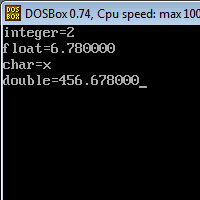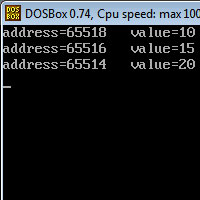In C programming, data types specify an extensive system used for declaring variables(like int a) or functions(void fun1()) of different types. The C data type of a variable determines how much space it occupies in memory and how the bit pattern stored in memory will be understood by the processor.
Various arithmetic datatypes and functional data types available in the C programming language are enlisted below
Data Types in C and Description
Basic data types Of C language:
integer type
This type is used to define integer numbers. It is denoted as “int” in the C programs in this c programming tutorial
{
int number;
number = 5;
}
Floating-point types.
This type is used to define decimal numbers. It will be denoted as “float” in the c language
{
float Miles;
Miles = 5.6;
}
Boolean type
The Boolean type is used to define a variable that consists of only two values true or false
{
bool b = getc(stdin) == ‘t’ ? true : false;
}
double – data type
Double in c language is used to define BIG decimal point numbers. The memory reserved for this datatype is twice as compared to the int datatype. Likely to be 8 bytes.
{
double Atoms;
Atoms = 2500000;
}
char – data type
char data type defines characters in a c program.
{
char alphabet;
alphabet = ‘x’;
}
Example(data types)
#include<stdio.h>
#include<conio.h>
void main()
{
int a=2;
float b=6.78;
char c=’x’;
double d=456.678;
clrscr();
printf(“integer=%d”,a);
printf(“\nfloat=%lf”,b);
printf(“\nchar=%c”,c);
printf(“\ndouble=%lf”,d);
getch();
}

Enumerated types in C language:
They are also arithmetic types and they are used to define variables that can only be assigned certain discrete integer values throughout the c program.
The type void:
The type specified void returns no value, meaning no value is available. It is used mainly in functions that return null or no value.
Derived types in C programming:
They include (a) Pointer types(int *a), (b) Array types(int a[5]), (c) Structure types(struct student), (d) Union types, and (e) Function types(void or int).
Example(derived data type)
#include<stdio.h>
void main()
{
int *x[3];
int a=10, b=15, c=20,i;
clrscr();
x[0]=&a;
x[1]=&b;
x[2]=&c;
for(i=0;i<3;i++)
{
printf(“address=%u\t”,x[i]);
printf(“value=%d\n”,*x[i]);
}
getch();
}


